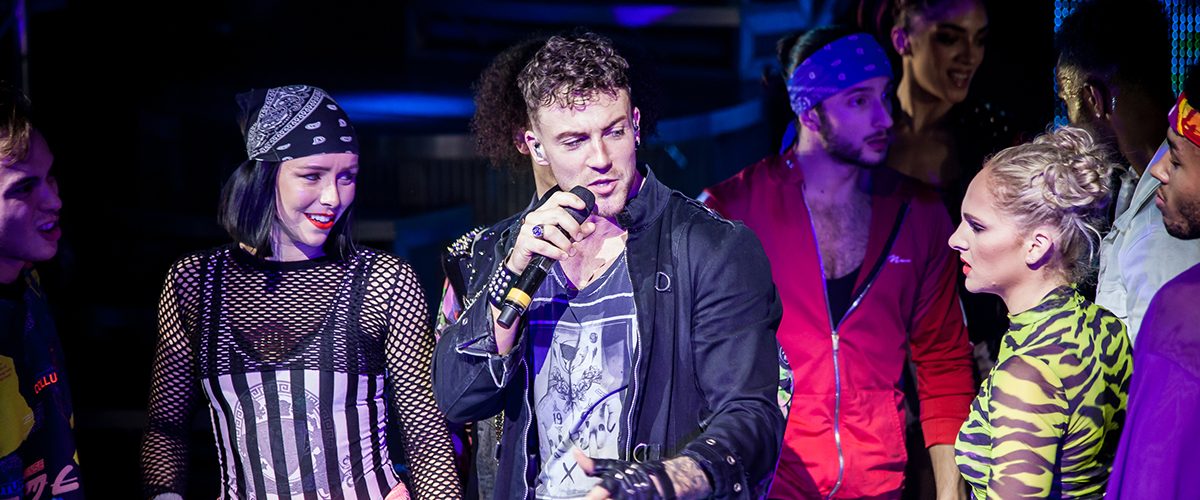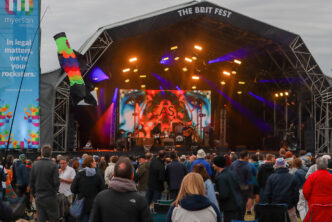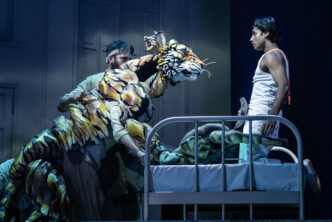It’s not all about you, Michael – Thriller Live is a fast-paced jukebox affair, bursting with hit after hit.
One of the most difficult dilemmas of modern life revolves around the revelation of the ‘dark star’: that is, the discovery that an artist whose work you previously admired, is revealed to be at best, a poor human being, and at worst, a bully, crook or sexual predator.
Frank Sinatra made some of the most romantic music of all time but Shawn Levy’s book Ratpack Confidential presents a bleak corollary, drawing a picture of a man who had no problem slapping girlfriends around, reneging on business contracts or transporting suitcases of dirty money for his Mafia buddies.
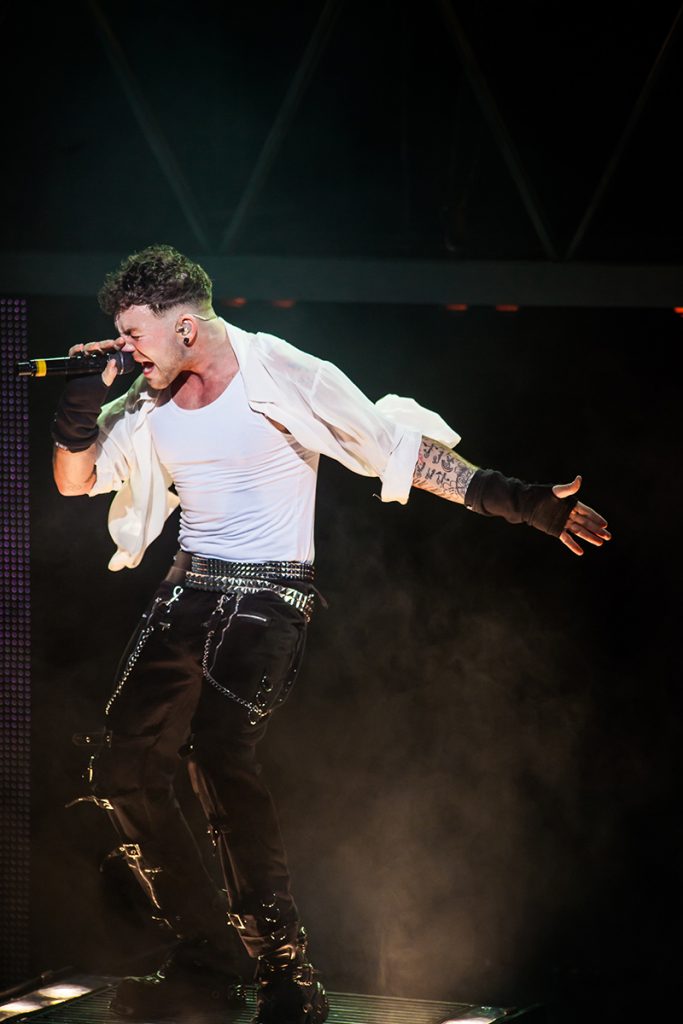
In a post Me Too world, the revelations come thick and fast. Kirk Douglas – a powerful, charismatic actor and impressive beacon for old school Hollywood ideals – has only been gone a week but several obituaries have been forced to address the stain on his otherwise heroic character: the allegation the Spartacus star sexually assaulted Natalie Wood early in her career. The drumbeat of rumour is likely to grow louder over the coming months.
And so to perhaps the king of dark stars, Michael Jackson. It’s common knowledge that MJ was psychologically abused as a child, raised by a monstrous father – Joe Jackson – who ruthlessly groomed his sons for fame, to fulfill his own thwarted ambitions. After the end of the Jackson 5, Jacko established himself as a star in his own right, turning out a series of world conquering albums which earned him the title ‘king of pop.’ Fred Astaire praised his dance moves. Top-of-their-game movie directors like John Landis, Martin Scorcese and Francis Coppola shot his music promos. There were endless awards and plaudits. During the 80s, Jackson could do no wrong; he had the Midas touch.
In the 90s, things got darker, with allegations of sexual abuse. The family of Jordan Chandler brought a charge against Jackson, eventually settled out of court to the tune of $23 million. There was another high profile court case in 2005, with Jackson eventually cleared of all 14 charges. Then, in 2019, came the exhausting documentary Leaving Neverland. ‘Michael Jackson was one of the kindest, most loving people I knew’, said Ward Robson, one of the two subjects of the film. ‘He also sexually abused me for 7 years.’
It’s more of a live concert than a musical, with a precision tooled band, belting out the music
The more zealous fans – who are legion – will scream ‘witch-hunt!’ or ‘Michael loved children!’ (Let’s not forget he once dangled one of his own kids off a hotel balcony, as a misguided jape.) But the detailed testimonies of Robson and James Safechuck are impossible to ignore; the evidence is too compelling. In the eyes of many critics, Michael Jackson had a choice and depressingly settled on the low road, edging increment by increment from lonely adolescence into celebrity dysfunction (pet chimps, oxygen tents, cosmetic surgery), before finally, tragically, donning the abuser’s cloak himself. Responding to the release of Leaving Neverland, Guardian columnist Suzanne wrote a piece titled ‘Enough is enough: Michael Jackson’s music is dead to me now.’
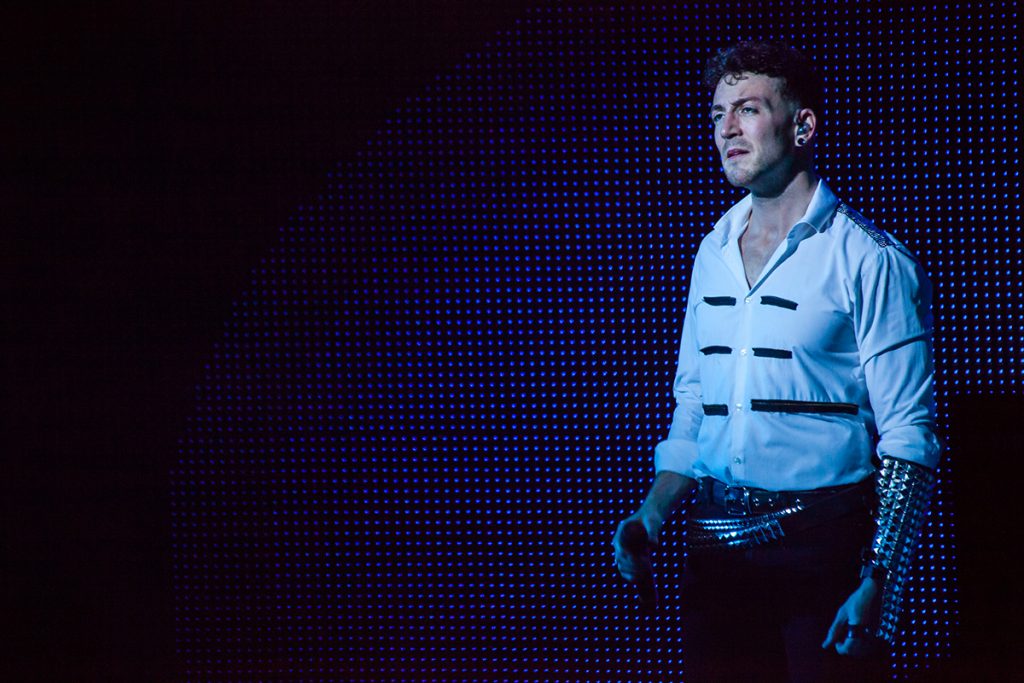
It’s an impossible situation, and many will agree with her. But this zero tolerance approach is unfair as it discounts the valuable contribution of the musicians, co-writers, dancers, choreographers, photographers, costume designers and make-up artists who toiled away behind the scenes. Should they be ignored and cast out? Off The Wall and Thriller – two of the great modern pop albums – were collective efforts, successful in large part due to the studio expertise and commercial intelligence of producer Quincy Jones. Jacko is no longer here but what might Jones – a decent, sensible character – say if he was? ‘It’s not all about you, Michael.’
It’s probably best to take a similar view with Thriller Live, a stage celebration of the music of Michael Jackson, and the Jackson 5. Directed and choreographed by the massively experienced Gary Lloyd, Thriller Live is a fast-paced jukebox affair, bursting with hit after hit. If a show is to be judged by audience reaction, then it’s a success of super-nova proportions; people are on their feet within the first half hour. It’s more of a live concert than a musical, with a precision tooled band, belting out the music (arrangements are by John Maher). Some of the set pieces are quite superb, especially Remember the Time (a personal favourite), Smooth Criminal, Thriller (complete with stage zombies) and Beat It. Stage dancers rarely get mentioned in reviews but it’s necessary to make an exemption for this gifted bunch, so let’s hear it for: Tony Ben Azouz, Molly Francis, Danyul Fullard, Joshua De La-Garde, Natorii Illidge, Ryan Josiah, Ondreea Kitching, Kia Pantazis, Eva Phillips, Rhianna Richards, Nicolas De Souza, and Jordan Jules-Stock.
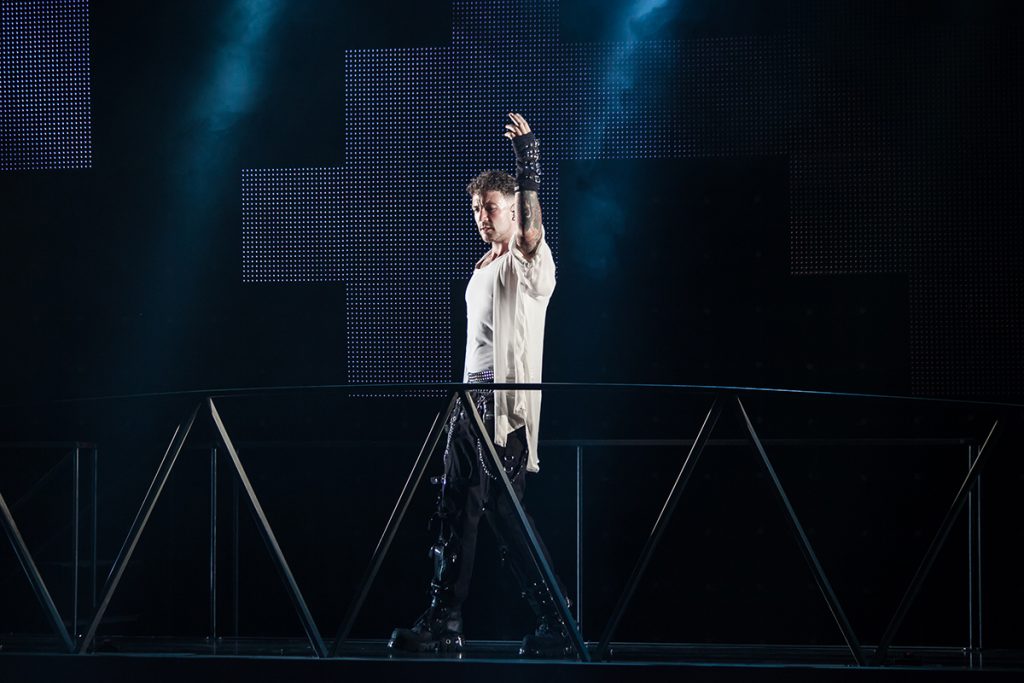
Vocal duties – plus some moon walking – are shared between seven singers: aside from vocal director Britt Quentin (whose positive energy guarantees the pace never dips), there are memorable spots for Kieran Alleyne, Jason Brock, Ceante Harris, Shaquille Hemmans, Joseph Thomas and Adriana Louise. The latter, a native New Yorker, has an effortless, sexy attitude which marks her as someone to watch: if The Sopranos had been a musical, she would have been ideally cast as Tony’s mistress.
I could have done without the cheesy, hagiographic links: ‘Michael Jackson’s music continues to inspire peace in us all’, we are told, whilst images of Martin Luther King, John F Kennedy and Mother Theresa are projected in the background (clearly this is nonsense). We’re here for the music at the end of the day: the only mis-step is the inclusion of the stodgy, pompous Earth Song (it’s melody forever entwined with images of Jarvis Cocker rushing the stage at the 1996 Brit Awards).
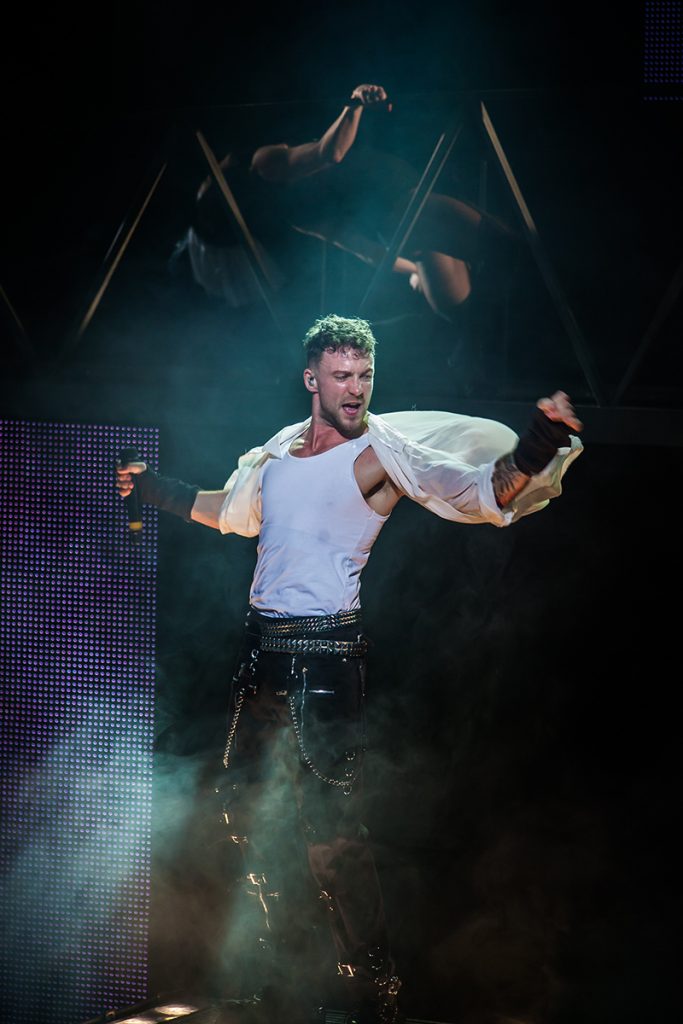
In the early 80’s, watching Michael Jackson sing and dance in videos like Wanna Be Starting Something, Billie Jean and Thriller was an exhilarating experience; an explosion of rare, heart-quickening talent. Years from now, as the dust settles, we’ll hopefully have a clearer understanding of his demons, and consider him with greater compassion. Better to accept this reality than continue living in denial.
So in 2020, it’s right to reconsider his legacy. We can’t ban his music, nor should we: rather view it as something with a higher purpose that will serve as a creative spur for emerging artists. There’s a lot of talent in Thriller Live; I’m sure at least one of these performers will go on to enjoy a massively successful career. Hopefully they will have the ability to make sounder moral choices than Jackson himself.
★ ★ ★ ★Thriller Live is at the Palace Theatre, Manchester from 10-15 February 2020.

